Winners of the 2021 WARMING Competition propose urban sedimentology, whale-based carbon capture, and flood-proof farming
By Alexander Walter|
Wednesday, Dec 15, 2021
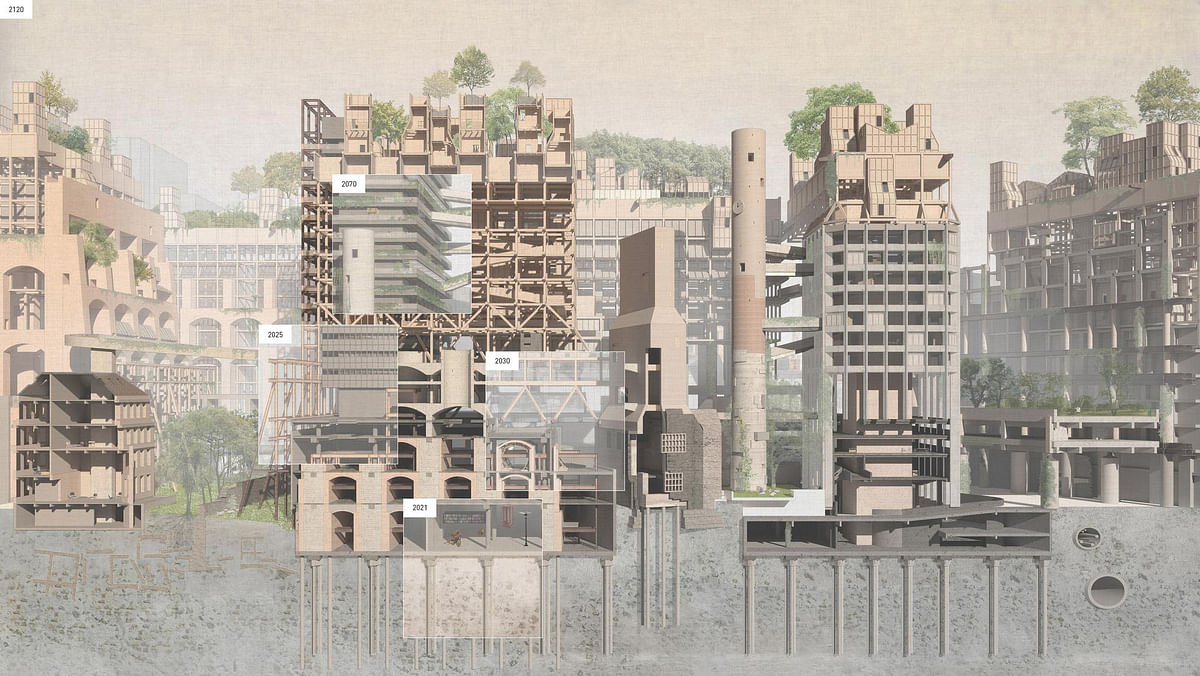
Related
The winning entries of Arch Out Loud's 2021 WARMING Competition have been revealed. The challenge invited students and professionals from the fields of architecture, planning, and design to create and imagine the future of our built environment as it responds to our world's greatest crisis: climate change.
"How will our built environment react to rising sea levels, extended droughts, climbing temperatures, and other symptoms of global warming?" the brief asked. "How can our buildings and cities prevent the severity of natural disasters, degrading air quality, melting ice caps, and climate change at large?"
Participants were asked to propose new or adapted architectural spaces that address issues of global warming. Entries were not restricted to any particular program, scale, or site.
This year's WARMING Competition jury comprised noteworthy architects and designers, including Thom Mayne, Sou Fujimoto, Asif Khan, Alice Britton, Tei Carpenter, Rossana Hu, Sheila Sri Prakash, Lola Sheppard, Neyran Turan, and Ken Yeang.
Overall Winner: Urban Sedimentology by Boji Hu
Project excerpt: "Urban Sedimentology is an architectural paradigm operating within a new legislative framework. It opposes excavation, demolition, expansion, and provokes reuse, re-purposing and the re-assembling of what we already have. It introduces architecture as a resistant force against climate change, by reflecting on the construction process within the geological time scale. It questions the life cycle of urban artefacts and seeks solutions to stimulate the pursuit of longevity." ~ Read more
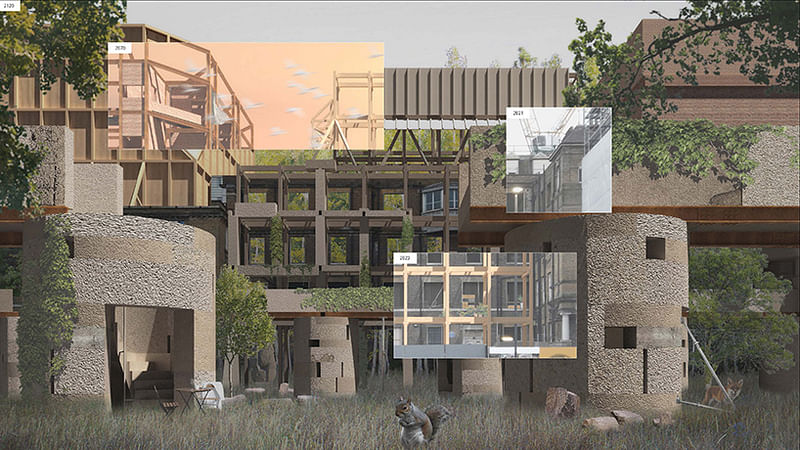
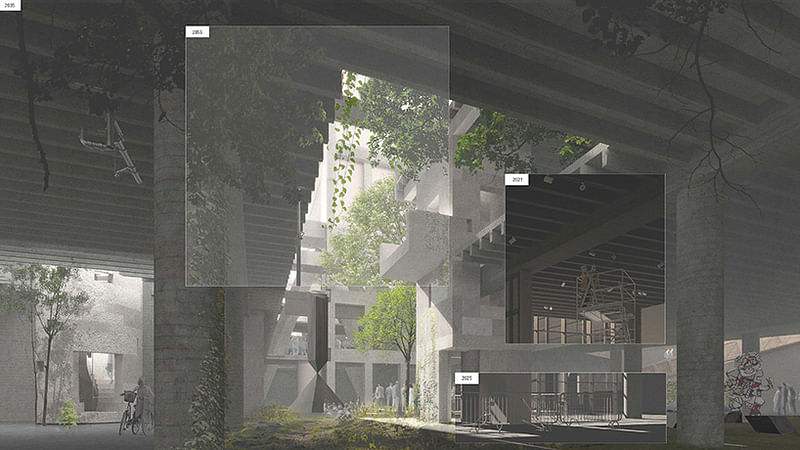
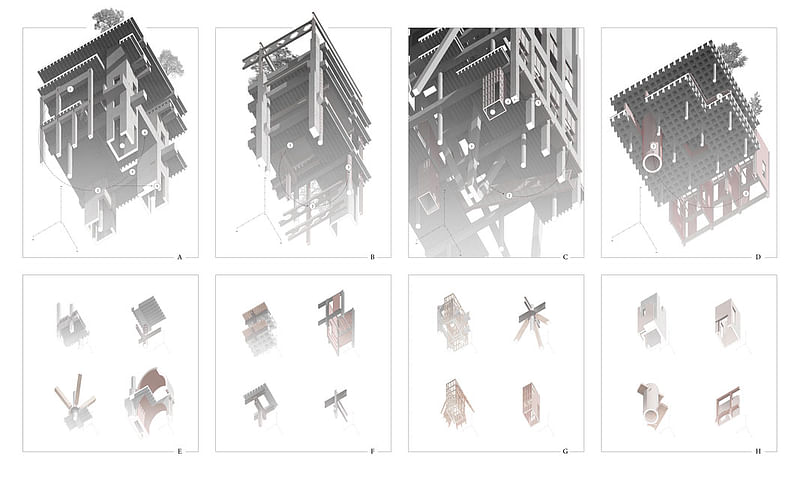
Prevent Award Winner: Whales Babysitter by Zeyu Yang & Danni He
Project excerpt: "In 2010, scientists discovered a cetacea-based approach to ecological regulation in which the whales’ vertical movement of bringing minerals to the surface of the ocean is called the 'whale pump,' and the trans-oceanic migration of whales is called the 'whale conveyor belt.' Both of these behaviors increase the phytoplankton population in the sea, which can indirectly help fix carbon dioxide in the atmosphere and reduce global warming. According to statistics, 1% increase in phytoplankton from whale activity would add hundreds of millions of tons of additional carbon capture each year, equivalent to a sudden adding of 200 million trees to the surface of the earth." ~ Read more
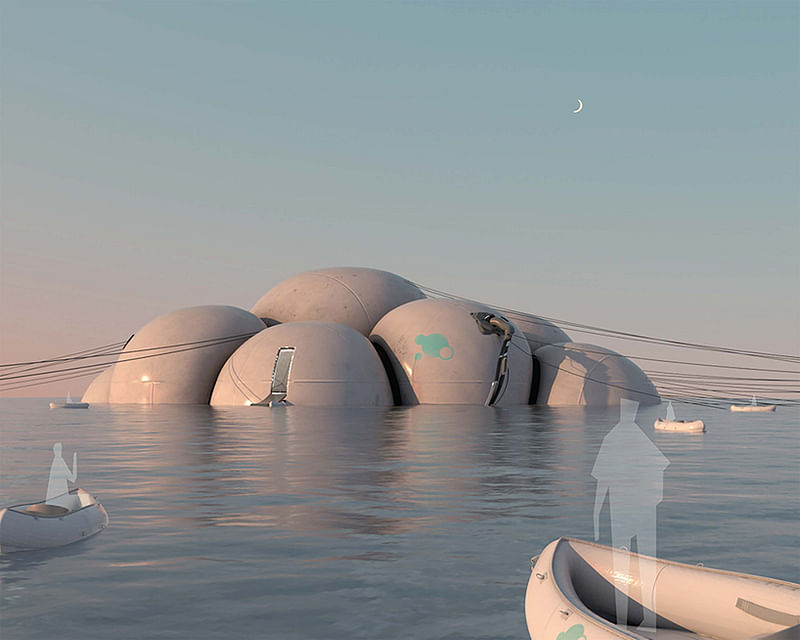


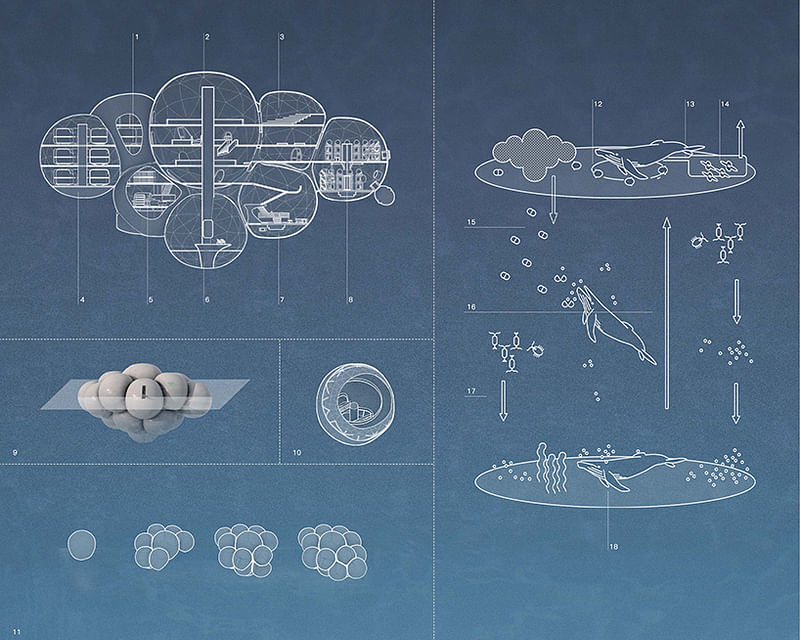
React Award Winner: Farmer’s Kit by Jiyoon Lee, Michelle Hoe & Zoe Tam
Project excerpt: "Floods are one of the most significant natural disasters in the agricultural industry, accounting for 43% of documented disasters. Currently, flood-induced reduction of the food supply is between 5% and 8%. Farmer's Kit addresses how citizens might adapt to rising temperatures and sea levels when climate change has left much of the city underwater in 2080." ~ Read more



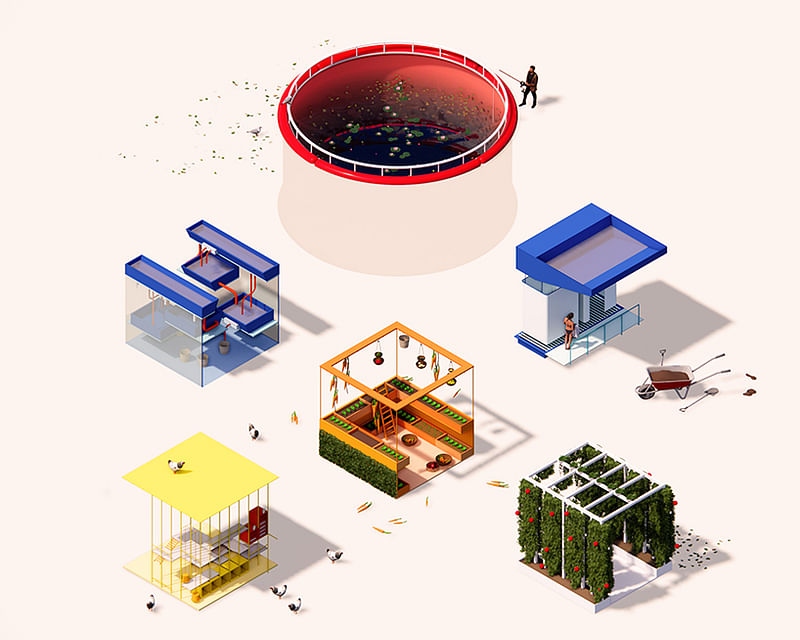
To view all the winning projects from the competition click here.
RELATED COMPETITION WARMING Competition 2021


Share
0 Comments
Comment as :